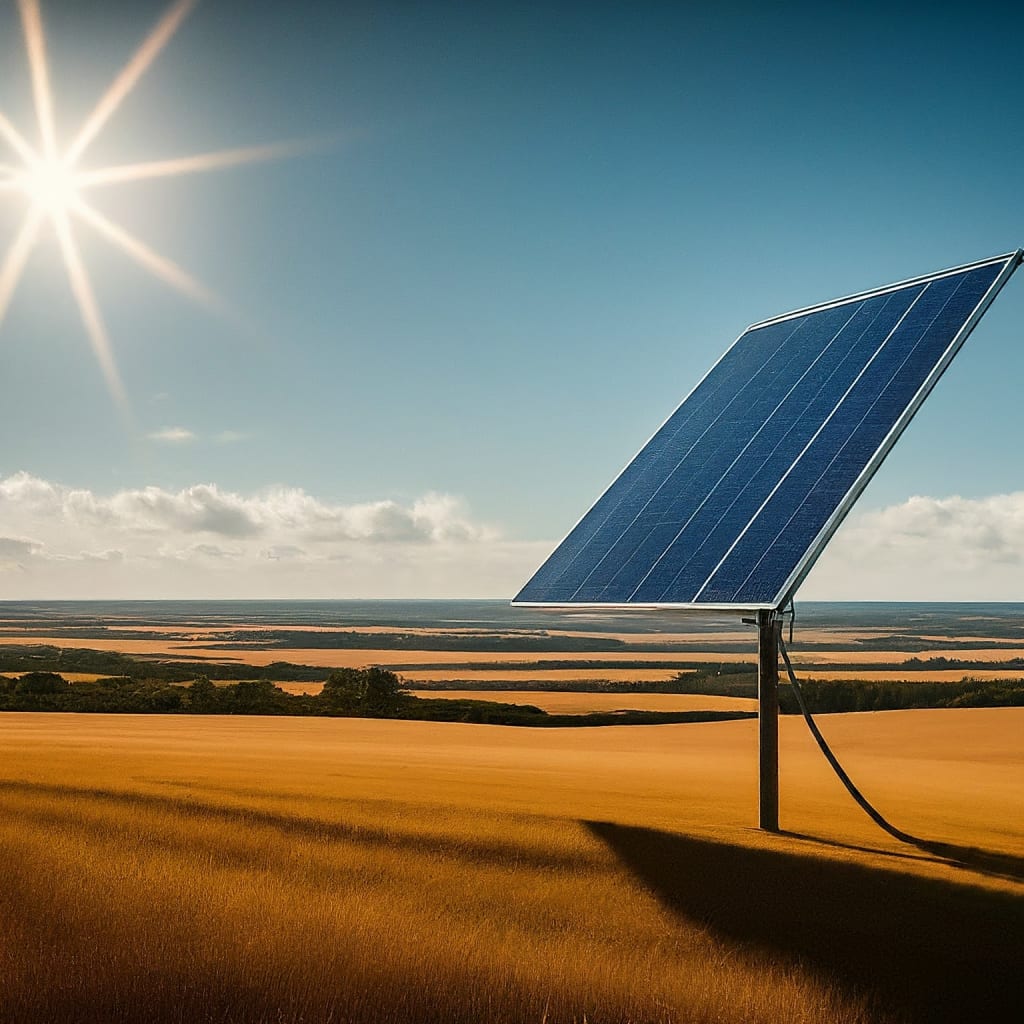Do Solar Panels Only Work with Sunlight?
The Power of Photons and Indirect Light

Solar panels have become synonymous with clean energy and a reduced carbon footprint. But a common question lingers: Do solar panels solely rely on direct sunlight to generate electricity? While sunlight is the primary driver, the relationship between solar power and light is a bit more nuanced.
How Solar Panels Turn Light into Energy
The Photovoltaic Effect: At their core, solar panels are made up of photovoltaic (PV) cells. These cells contain silicon, a semiconductor material. When photons (particles of light) hit the cells, they knock electrons loose from the silicon atoms. This flow of electrons is what generates electricity.
Direct vs. Indirect Sunlight: Direct sunlight provides the highest concentration of photons, leading to optimal solar panel performance. However, indirect sunlight (like diffused light on a cloudy day) still carries photons, allowing solar panels to produce energy, albeit at a decreased rate.
Solar Energy on Cloudy Days, in Shade, and at Night
Cloudy Days: Yes, solar panels still generate power on cloudy days. The efficiency is reduced, but the photovoltaic process still works with the existing photons.
Shade: Shading does significantly impact solar panel output. Trees, buildings, or other objects casting shadows block potential light absorption. Optimizing panel placement to minimize shade is crucial.
Nighttime: Unfortunately, solar panels do not produce electricity at night. They require the presence of photons (from sunlight) to function. However, energy storage solutions like solar batteries can store excess solar energy generated during the day for nighttime use.
Factors Affecting Solar Panel Efficiency Beyond Sunlight
Temperature: Solar panel efficiency drops slightly in extremely hot temperatures. Ideal operating temperatures are actually on the cooler side.
Dirt and Debris: Dust, pollen, or leaves can all reduce light reaching the PV cells, minimizing power production. Regular cleaning is important.
Panel Angle: The angle at which sunlight hits the panels impacts power generation. Proper tilting and orientation are key to maximizing output.
Maximizing Your Solar Energy Potential
Site Assessment: A professional solar installer will evaluate your roof or property to identify optimal panel placement, accounting for potential shading and maximizing sunlight exposure.
Technological Enhancements: Advanced technologies like microinverters and power optimizers can help mitigate the impact of partial shading on individual panels within a system.
Solar Batteries: Pairing solar panels with batteries allows you to store daytime energy for use when sunlight isn't available, offering greater energy independence.
Advanced Technology: Beyond Standard Panels
Bifacial Solar Panels While typical solar panels only absorb light on the front side, bifacial panels have photovoltaic cells on both the front and back. This allows them to capture reflected and scattered light, boosting overall energy production, particularly in areas with reflective surfaces like snow.
Concentrated Photovoltaics (CPV) These systems use lenses or mirrors to focus a large amount of sunlight onto a smaller area of highly efficient solar cells. While usually found in large-scale installations, CPV further demonstrates the variety of ways light can be harnessed for solar generation.
The Role of Inverters
Understanding Inverters: Explain that solar panels produce direct current (DC) electricity, but homes and businesses use alternating current (AC). Inverters are crucial devices that convert DC power into usable AC power.
Microinverters vs. String Inverters vs. Power Optimizers: Briefly outline the differences between these types of inverters, highlighting how microinverters and power optimizers can lessen the impact of partial shading on a solar array.
Solar in a Larger Energy Landscape
Net Metering: Discuss how net metering policies (where available) allow homeowners to receive credits for excess solar energy they send back to the grid, offsetting their energy bills and further enhancing the financial appeal of solar.
The Future of Solar: Mention emerging trends like floating solar installations on reservoirs or integrated solar roofing tiles. This adds a forward-thinking element to the discussion.
FAQs
Q: Does my home need full sun exposure for solar panels to be worthwhile?
A: While full sun is ideal, solar panels can still be beneficial with some shade or periods of indirect sunlight. A professional installer can assess your situation and advise accordingly.
Q: Will solar panels work in winter or rainy climates?
A: Yes, solar panels work year-round, even in less sunny conditions. Production may decrease, but they will still generate power.
Q: Are there types of solar panels that work better in low-light conditions?
A: Yes, advancements have created solar panels more efficient in lower light conditions. Thin-film solar panels often perform better with diffused light than traditional options.
Conclusion
Solar panels are most efficient with direct sunlight, yet they do not require it to function entirely. Their ability to harness both direct and indirect sunlight makes them a versatile clean energy source. If you're considering solar, consult a trusted installer to determine the viability for your specific location and energy needs.
About the Creator
Neck Akila
My specialty is combining research-backed strategies to create marketing copy that resonates with readers and drives conversions





Comments
There are no comments for this story
Be the first to respond and start the conversation.